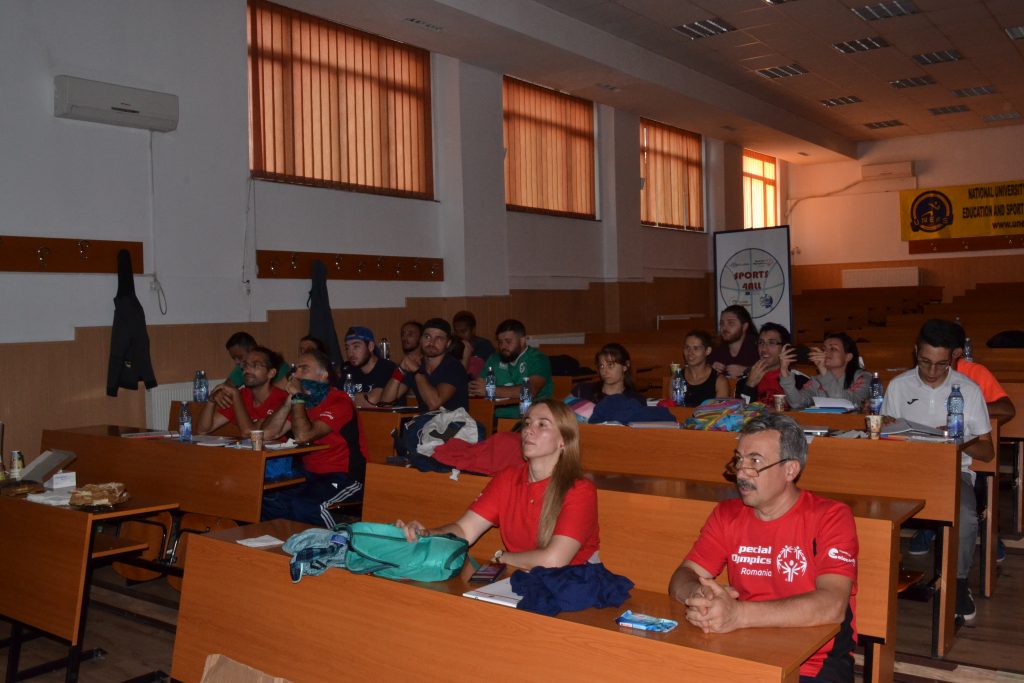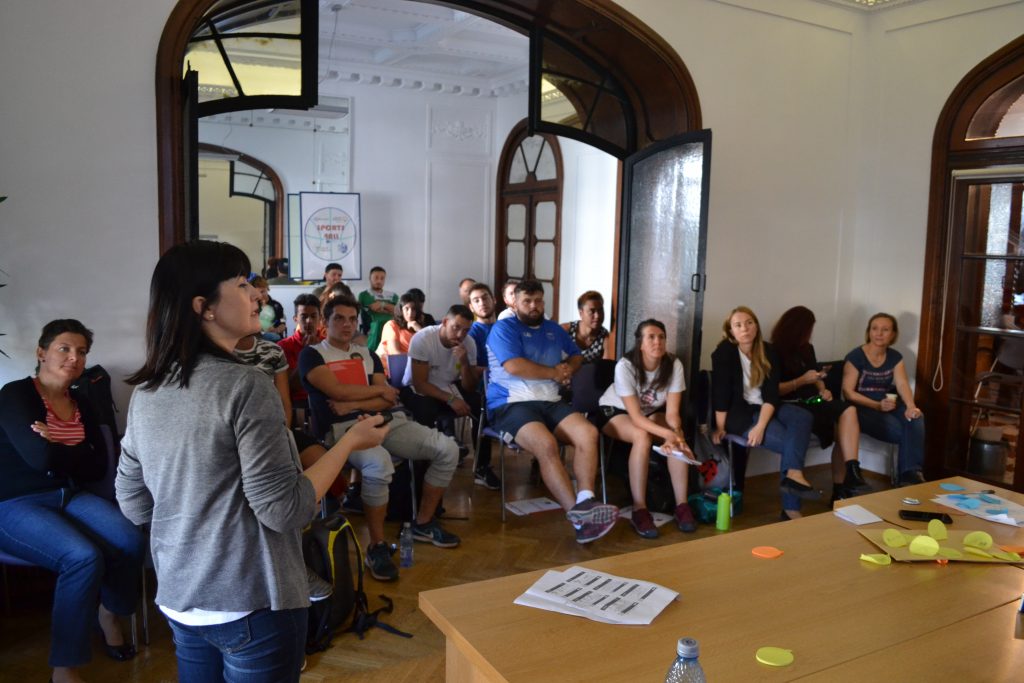The end of the year is usually a good chance for drawing conclusions, calculating results and making new resolutions. If you feel that you are up to it, of course (J). For me, attending the “Sport4allbegins” training course hosted by Special Olympics Romania in Bucharest was an opportunity to meet very interesting people with different cultural background and to learn about the extraordinary organisations that put together this project. Although coming from different places, we all work for vulnerable categories of people whom we try to support through sports, education, social inclusion and, generally, good quality services. Listed like that, these concepts seem big words with a glamourous sound that one uses when writing a bid or a project application. In reality, we are lucky enough to truly experience these while working, volunteering and participating in our organisations’ activities.
In a way it seems to be a paradox that sports can be a tool for social inclusion, since sports are usually one of the most competitive areas of life. But, as I found out during the training, social inclusion might mean to play rugby with diverse people, to include newcomers in the community in your team, to bring together both boys and girls in the game of korfball, to make friends and develop projects with people from your neighbourhood and from other countries as well, to let children and young people play and experience multicultural situations.
I filtered all the information that I acquired during the course through my experience at Motivation Romania Foundation, an organisation that I had the privilege to introduce to everybody at the training. Therefore, for me, social inclusion refers to our beneficiaries that receive an appropriate wheelchair and independent living skills training. It refers to my colleagues who are wheelchair users themselves and who come to office as I do, work side-by-side with everybody and generally have a regular commonplace life. It also speaks about buildings with a proper ramp at the entrance and an accessible toilet inside. It speaks about open-minded employers who give an equal chance to candidates with disabilities.
We thankfully live in a time when and in a place where tolerance is more and more fashionable (J). Based on a rich history and cultural tradition, the contemporary European society integrated the human rights approach in its policies and we all (either vulnerable groups or not) benefit from this. Organisations like Terrès en Melèe, Club Korfball Badalona, La Rotllana, SOR and Motivation are possible and meaningful due to this philosophy and their purpose is consistent with it.

But there is still a lot to do in this field. Being different or an outsider is still a burden for most and there are still many people deprived of their rights due to insufficient legislation, poor implementation of rules, lack of awareness and ignorance. That is why for me social inclusion might also mean trying to make people without disabilities aware that disability is not a label that we put on people, but it’s a reality that we all meet at some point in our lives, which might anytime affect us, our friends and our loved ones. As I was saying in one of my presentations at the training, disability is the opposite of functioning and they are both at the two ends of a continuum on which all people are situated, somewhere more towards one end or towards the other. We all experience difficulties of functioning from time to time and more and more as we age. One might say that our entire life is practically the fun that we have while trying to cope with the obstacles that we encounter.
 Gabi Comanescu. RO
Gabi Comanescu. RO